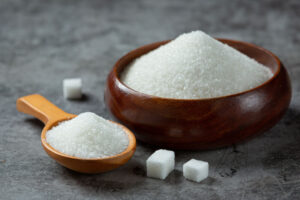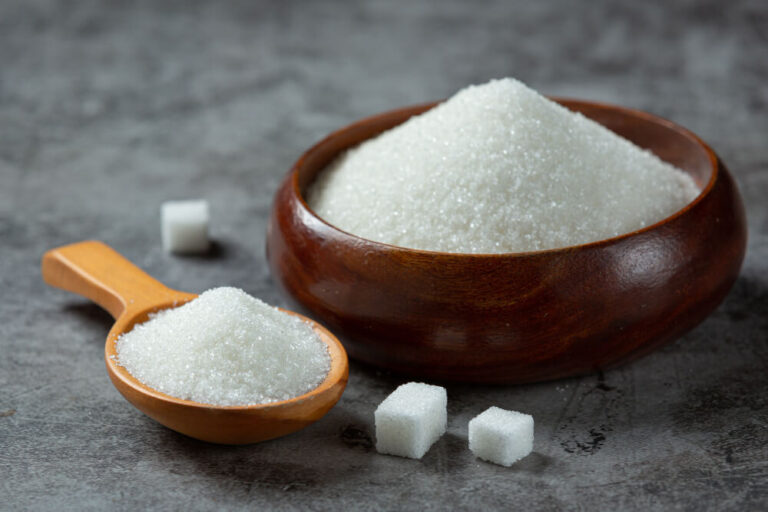Sugar is an essential ingredient in many food products and beverages, providing sweetness and energy. However, recent global events have sparked concerns about a potential sugar shortage on the horizon. This blog post aims to explore the causes of the shortage, its impact on consumers, and alternatives to sugar in the market. By understanding the reasons behind the shortage and staying informed, you can make better decisions about your sugar consumption and explore other options for sweetening your favorite treats.
About Sugar
Sugar is derived primarily from two sources: sugarcane and sugar beet. These plants are grown in various parts of the world, with Brazil, India, and the European Union being major sugar producers. Sugar is an essential commodity, but it is also a significant contributor to various health issues when consumed excessively.
Despite these concerns, global demand for sugar continues to grow, making any potential sugar shortage a significant concern for the food industry and consumers alike.
Is There a Sugar Shortage?
Yes, there is a Sugar Shortage. Recent reports suggest that the global sugar supply might be threatened due to various reasons. Climate change, including droughts and floods, is negatively affecting sugarcane and sugar beet crops.
Additionally, rising energy costs and geopolitical issues are hampering the supply chain and adding to production costs. While it is still uncertain if a global sugar shortage will occur, some regions may face sugar shortages and increased prices.
Sugar Shortage 2023
Predictions for a sugar shortage in 2023 are based on the current challenges facing the global sugar industry. These factors, such as climate change events and geopolitical tensions, are affecting the production of sugarcane and sugar beet.
Disruptions in the supply chain and increased production expenses due to rising energy prices and geopolitical tensions also contribute to the potential shortage. As a result, some regions may experience a sugar shortage and increased prices in 2023.
Why is There a Sugar Shortage?
The leading causes of the anticipated sugar shortage are climate change events and geopolitical issues. Droughts, floods, and other extreme weather conditions have damaged sugarcane and sugar beet crops, leading to reduced yields.
Geopolitical factors, such as trade disputes and political instability, further disrupt the supply chain. Additionally, the surge in energy prices has resulted in higher production costs, making it more challenging for sugar producers to maintain a stable supply.

Impact of Shortage on Consumers
A sugar shortage can have significant consequences for consumers. Reduced sugar availability could lead to increased prices for both sugar and products containing sugar, placing a financial burden on households.
Additionally, the shortage may result in fluctuating prices and localized shortages, causing uncertainty for consumers planning their grocery shopping. It is essential for consumers to stay informed about the sugar supply in their region and make informed choices about their sugar consumption.
Alternatives to Sugar in the Market
In light of a potential sugar shortage, it is crucial to explore alternatives to sugar. Various sugar substitutes are available, including natural sweeteners like honey, maple syrup, and agave nectar, and artificial sweeteners such as aspartame, sucralose, and stevia.
These alternatives can be used in place of sugar in many recipes, allowing consumers to continue enjoying sweet treats without relying solely on sugar. However, it is essential to research the health implications of each alternative and use them in moderation.
Efforts to Address the Sugar Shortage
To combat the potential sugar shortage, governments and industry stakeholders are taking various measures. These include investing in research and development to improve sugarcane and sugar beet crop yields, promoting sustainable agricultural practices, and diversifying sources of sugar production.
Additionally, efforts are being made to minimize disruptions to the supply chain and stabilize energy prices. By working together, governments, industries, and consumers can help mitigate the effects of a sugar shortage and ensure a stable supply of sugar.
Conclusion
The prospect of a sugar shortage is a serious concern for both the food industry and consumers worldwide. Climate change events and geopolitical tensions are the primary factors contributing to this potential crisis.
Consumers should stay informed about the sugar supply in their region and explore alternatives to sugar to prepare for any potential shortages. By understanding the causes and impacts of a sugar shortage, we can work together to find solutions and ensure a stable supply of this essential commodity.
Also Read:


